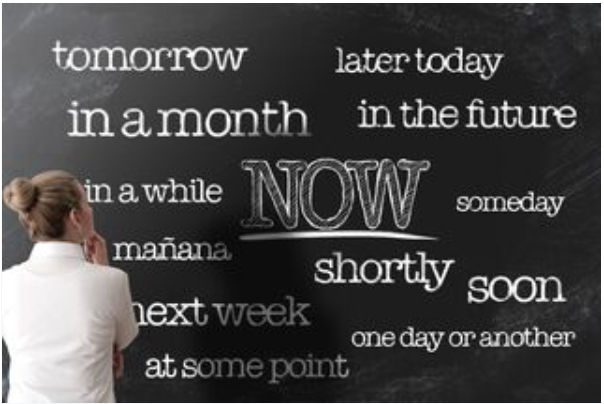Release time: 2020-05-26 11:56
Graduating Seniors with ADHD
What's next and how do I get started?
It’s just not the senior spring semester you pictured. No in-person ceremonies, no senior week festivities and no special celebrations. For many seniors, school is (almost) over. Instead of participating in typical end-of-the-year traditions, having meaningful goodbyes with friends, you’re closing your computers and sitting in the same room as before.
Of course, it’s disappointing and sad to experience the dramatic changes COVID-19 has wrought on our lives over these past few months. Whether you’re relieved that online school is over and happy to be finished with school or you’re missing an independent life and hanging out with your friends, it’s perfectly normal to have a wide range of reactions to the upheaval in your life.
While it’s important to acknowledge your losses and frustration, it’s equally, if not more important, to honor this occasion. Make lemonade out of these graduation lemons. Why does this matter? Because it’s incredibly important to validate all of the hard work you did and not let this momentous event just slip by. It also represents the first step in leaving your former life as a student and embarking on the next phase--whatever that is. So dress up for a virtual prom dance party, gather with friends online or safely in person to reminisce about highlights of the past four years together, ask your parents for a special meal and invite extended family to join you on Zoom for cake, toasts and stories. Make these joyous. These are not replacements for what’s missing but you’ll be glad you did something to celebrate together in some way.
Once the festivities have ended, you’ll be faced with the inevitable question: WHAT’S NEXT? Typical solutions of summer jobs, internships, travel and hanging out with friends just don’t look the same as they have in the past. Applications for permanent positions seem uncertain as many businesses are regrouping and/or cutting back as the economy begins to open up. All of this insecurity can seem paralyzing and, for folks with ADHD who often struggle with feeling overwhelmed anyway, it’s extremely hard to know which steps to make right now.
Feeling lost without a clear plan after graduation makes sense normally and that’s especially true in this COVID atmosphere. You’re not alone with this struggle; it’s okay to feel anxious or uncomfortable. Lots of things just don’t make sense right now. Will there be remote jobs to sustain you? Can you work in-person? Will you afford to live independently? What if September comes and things aren’t much better or are even worse? Will colleges and universities be open in the fall and how? With so many challenging questions that don’t have direct answers, lots of grads are super confused.
Without a purpose, people get depressed. So the most crucial thing you can do right now is engaging in the world in some way. As long as it interests you and you get a benefit from doing it, doing something is what matters most. You are part of a resilient generation who’s grown up during a time of great insecurity. Bouncing back and looking at your options from a different perspective is what so many kids with ADHD do best.
Here are some tips for helping you figure out your next steps:
1. Acknowledge your resilience: Think of a situation in the past where you faced an obstacle and overcame it. If you can’t remember one, ask your parents or your friends. Sometimes it’s hard to recall your own successes, especially if you’re feeling anxious or down about yourself. What are the specific challenges you are dealing with now? Think back to that previous situation. Name the skills or solutions you used or learned for success. Can you apply any of them to this current challenge? If so, how?
2. Focus on the present and the next present: We really don’t know how this virus will play out in the long-term and it’s hard for all of us to stand in that uncertainty. Instead of focusing on the negative aspects of not knowing, shift your view to a more manageable period of time. Think about your life in chunks: three months at a time may be the maximum for life plans these days. Consider what you can do today, next week and this summer instead of six months from now. With these smaller chunks, you’ll gain a sense of do-able possibilities and personal control instead of feeling dragged down by a mountain of insecurity.

3. Create a daily schedule: Now that the external structure of school is finished, you probably have heaps of unstructured time. Talk to your friends or your parents to assist you in making a daily routine that includes exercise, searching for and applying for jobs, volunteer positions or internships, socializing, gaming or other fun stuff. If it’s hard for you to make a list of these things on your own, don’t stress. It’s tough for lots of folks your age to do this. Set your shame aside and ask for help setting up daily and weekly goals. This isn’t the time for letting your pride run the show. Use timers and alerts, reward yourself during breaks with activities you like (checking social media, watching Youtube videos, walking the dog). Congratulate yourself when you make progress with your goals and accomplish any tasks. Aim for consistent efforting rather than perfection.
4. Do something—anything! Finding the dream job with a great salary and ideal responsibilities may not be likely in the COVID environment. Instead, focus on a position or activity that is good enough for now and keeps you occupied. When you are doing something, you are participating. This participation is great because it reduces your isolation and boredom at home and helps you feel valuable. Having a purpose and being responsible to others who aren’t family instead keeps you out of a rut and moves you forward. With this confidence, you’ll find it easier to look for other positions and manage whatever comes your way this fall.

Sharon Saline, Psy.D., is a clinical psychologist and an expert in how ADHD, LD, and mental health affect children, teens and families. She is the author of What Your ADHD Child Wishes You Knew.
psychology today